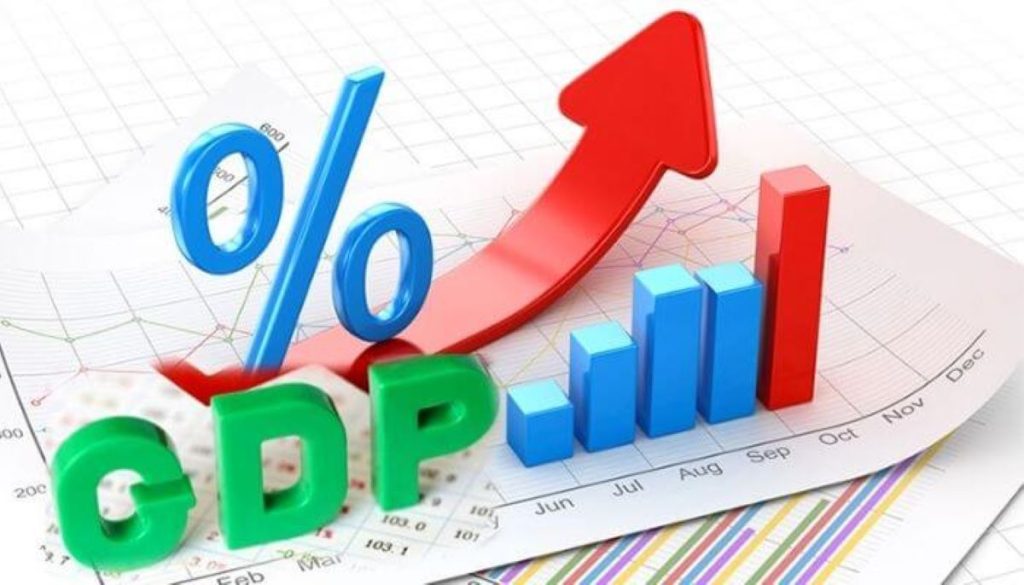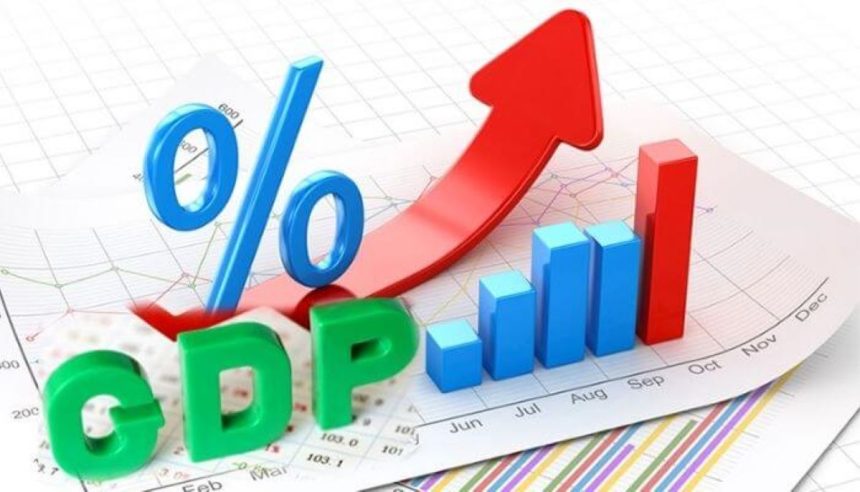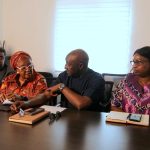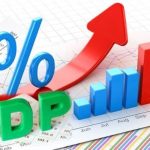IGR Initiative profers solution
to dwindling fortunes
Onome Amuge

Nigeria, Africa’s most populous nation, is facing a deepening economic crisis, with its per capita GDP in a concerning decline, sparking national debate and raising worries over the living standards of its rapidly expanding populace. Akinwumi Adesina, the outgoing president of the African Development Bank (AfDB), recently stressed this reality, highlighting a trajectory that has seen individual wealth eroded despite decades of oil production.
An analysis by economic expert Tunde Olatunji reveals a volatile path for Nigeria’s per capita income which stood at $93 in 1960 to a peak of $3,088 in 2014,and has now plunged to an estimated $1,597 in 2024. This downturn occurs as the nation’s population has exploded from 45 million in 1960 to around 227 million today, fundamentally altering the economic landscape for the average Nigerian.
The drivers behind this concerning trend are multifaceted according to analysts including oil dependence, weak industrial base, policy instability, demographic pressure, government failures, amongst others.
Reports have also shown that the sharp contrast with South Korea serves as a powerful cautionary tale. In 1960, both nations were economically comparable, with South Korea’s GDP per capita at $158 to Nigeria’s $93. By 2025, South Korea’s per capita GDP is projected to exceed $34,000, while Nigeria’s languishes below $2,000.
South Korea’s ascent is rooted in a strategic shift towards industrialisation, a world-class education system, and relentless innovation, making it a global leader in electronics, vehicles, and biotechnology, a stark departure from Nigeria’s continued reliance on crude oil and agriculture.
Experts point to productivity, industry & Subnational IGR amongst the critical missing links. They also argue that informal economy and high underemployment rates severely impact value added per worker. However, it is believed that developing the nation’s oil and gas value chain, exemplified by projects like the Dangote Refinery, could create significant domestic wealth.
Thus, experts assert that Nigeria’s challenge now is to pivot from mere resource extraction to value addition, decentralise economic power, and foster an environment where its growing population becomes a productive asset rather than an economic burden.
Against this backdrop, a recent webinar hosted by the IGR Initiative, a platform dedicated to improving Nigeria’s internal revenue generation processes, highlighted the systemic flaws inhibiting the nation’s economic potential.
During the webinar, titled “Unlocking Prosperity: Boosting GDP per Capita through Robust State and Local Revenue Growth,” economic and financial expert Tunde Olatunji presented a sobering analysis of Nigeria’s economic trajectory.
Olatunji argued that a fundamental misconfiguration of economic power and incentives lies at the heart of the problem. This is as states and local governments, heavily reliant on allocations from the federal centre, possess little incentive to drive productivity and value creation.
“By the time the state goes down to local government, they pay salaries, take homes, whatever little is left for investment,” Olatunji remarked, critiquing a system where subnationals merely exist to cover recurrent expenditure rather than enhance economic growth. He further added, “If you have a leader who believes that at the end of every 30 days is going to have money from Abuja, whether or not, all he needs to do is compare with what’s coming from Abuja. With that we have killed incentives.,”he stated, describing a system that lacks the incentives for local economic growth
The expert pointed to the extensive centralisation of economic levers as a major impediment. He questioned the federal government’s role in managing local infrastructure, citing, “What’s the business of the federal government with having responsibility for roads in some villages and localities? There is no way [humanly] speaking that it can effectively [bear] this type of responsibility.” This overreach, he argued, prevents local governments from being held accountable for issues that should rightly fall within their purview.
Olatunji provided an anecdote of a Nigerian state with gold deposits valued in billions of US dollars that, at one point, struggled to pay salaries due to challenges with federal allocations. This occurred even as foreign entities exploited these very resources under federal licenses, often causing environmental damage. The anomaly, he argued, stems from mining being an exclusive preserve of the federal government, denying states the ability to manage and benefit from their own wealth.
Olatunji also drew a contrast between Nigeria’s state oil company, NNPC, and Algeria’s Sonatrach. “If we see what Sonatrach, which is the National Oil and Gas Company for Algeria, has been able to make out of the economy of Algeria compared to what NNPC has been [for] us as a nation,” he stated, highlighting that Sonatrach, at one point Africa’s largest company with over 120,000 employees, focused on developing a comprehensive value chain, going beyond mere extraction. In contrast, NNPC has long been minimally profitable, contributing to Nigeria’s reliance on fuel imports despite its oil wealth.
Olatunji asserted that Nigeria’s deep-seated social and political challenges are fundamentally economic. “The foundation of our problem, both social and political are predominant, or they are largely or they are essentially economic. Until we address this economic structure, we will not be able to effectively address our social issues,” he warned.










